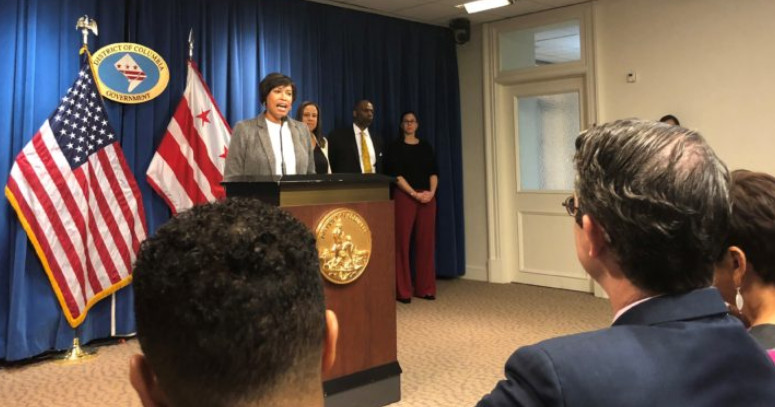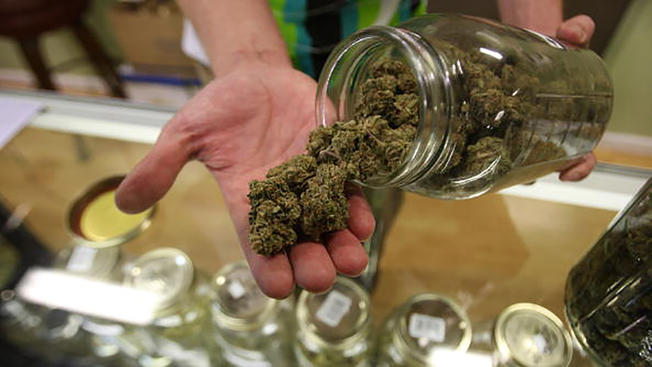House Republicans Thursday morning defeated an amendment pushed by Democrats 37 – 71 that would have allowed it. Then in the afternoon, a Senate smokable version of a medical marijuana bill went down in flames.
The two votes came in an effort to save a compromise worked out by legislative leaders to implement the constitutional amendment voters approved in November.
“If the drafters wanted smoking to be a constitutional right, they should have said it in the constitutional amendment,” said Sen. Rob Bradley, R-Fleming Island when questioned by senators about the prohibition. “(But) the idea of inhaling smoke into your lungs is inherently an unhealthy act.”Bradley sparred with Sen. Jeff Brandes, R-St. Petersburg, in an Appropriations Committee meeting before introducing the measure on the Senate floor. Brandes insists his reading of the constitutional amendments gives patients on the state’s medical cannabis registry the right to smoke as part of the treatment for debilitating illness.
His amendment would have given them that right. The other aspect of his bill would have lifted the cap on the number of licenses and retail outlets for medical marijuana. For Bradley and other lawmakers, that would have been too much, too soon. Brandes’ proposal would have jeopardized the compromise worked out between House and Senate leaders and added to the special session.
“From the very beginning, we said we needed to learn how to walk before we could run,” Bradley said. “This industry is still in its infancy.”
Bills moving in the House and Senate would increase the numbers of licensed marijuana operators to 17 and the number of retail outlets they could open to 25. The numbers will be revisited in 2020.
“The skids are greased,” Brandes said about the compromise before his rewrite died on the Senate floor. “It’s a bad bill. Its focus is crony capitalism. It is not a patient-focused bill at all.”
“What we are staring at I think is a finished product for this process,” said Louis Rotundo, a marijuana lobbyist who has worked the issue since the 2014 Compassionate Medical Cannabis Act.
“I think it’s moving in the direction of what we thought we were going to get two years ago,” said Rotundo.
The bill the House and Senate are moving clear up issues that have plagued the budding industry since the first round of licensing two years ago. The 10 new licenses to be awarded by Oct. 3 would include a member of the Black Farmers and Agriculturalists Association, a group frozen out of the first round by a bureaucratic snafu.
Two licenses also would be reserved for former citrus processors – a move Bradley justified because of the damage to that industry caused by citrus canker, greening, and international competition. And up to five high-scorers from 2015 who failed to win licenses would be grandfathered in.
Under questioning by Sen. Jack Latvala, R-Clearwater, Bradley could not explain who those high-scorers were or why the provision exists. He defended the measure as the applicants would be “shovel-ready” and able to increase product availability quickly.
Florida A & M University would be in line to reap hundreds of thousands of dollars in research money under the proposal.
Eligible patients would pay $75 for a medicinal marijuana registration card. Of that fee, $10 would be diverted to FAMU to educate minorities about marijuana for medical use and the impact illegal marijuana has on minority communities.
So far, 16,000 people are on the state’s compassionate use registry and the number is expected to grow tenfold as the industry matures.
The bill also requires physicians to submit treatment data to the University of Florida (A $400,000 contract) and creates a medicinal cannabis coalition within the H. Lee Moffitt Cancer Center and Research Institute.
“This bill is not perfect, but it is good,” said Ron Watson, a lobbyist for two cannabis firms who said he was nervously optimistic about the bill’s chances to make it to the finish line.
“I’ve been around here long enough to know until it is sent to the governor, it is not done,” said Watson.
credit:tallahassee.com











